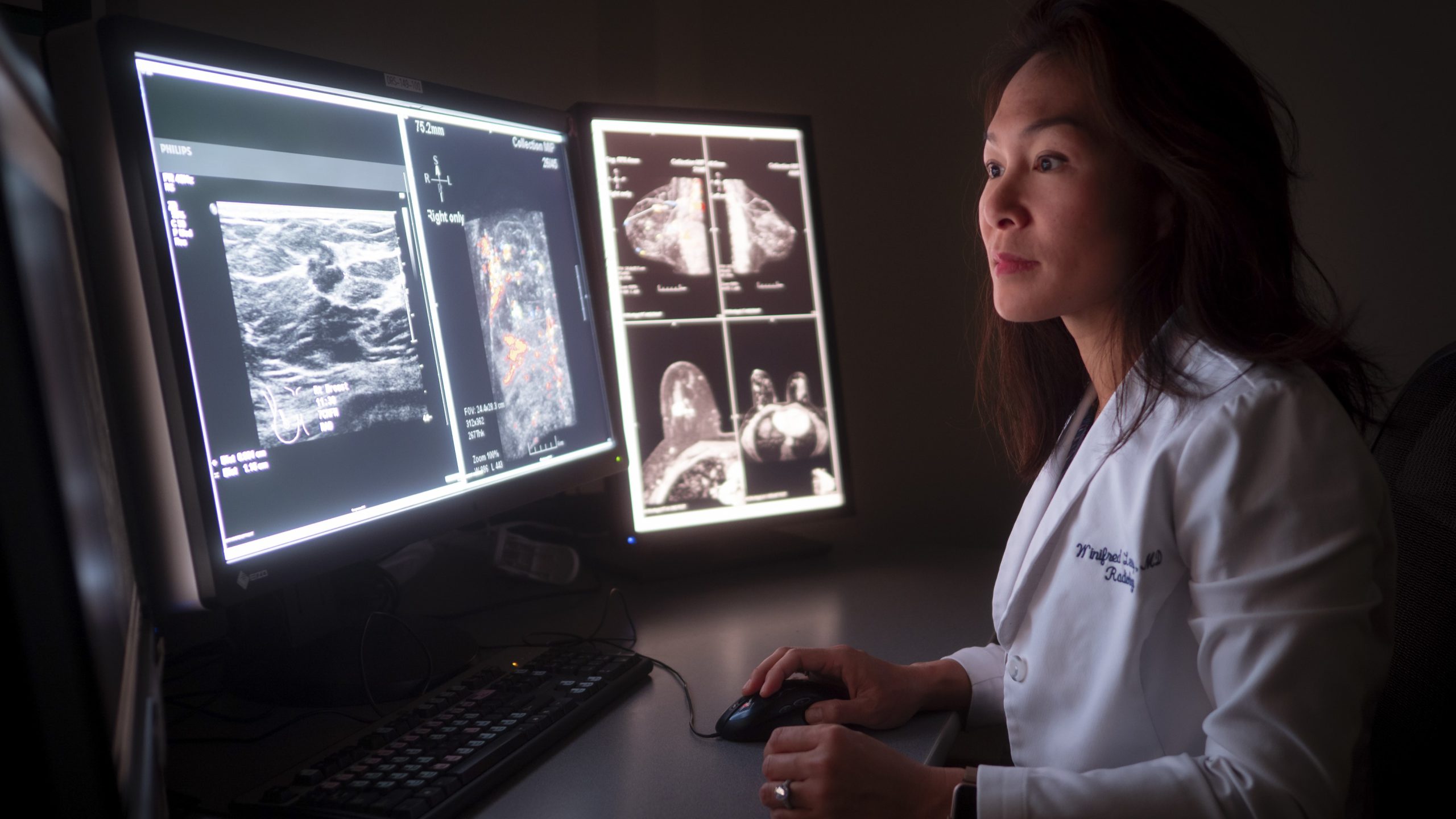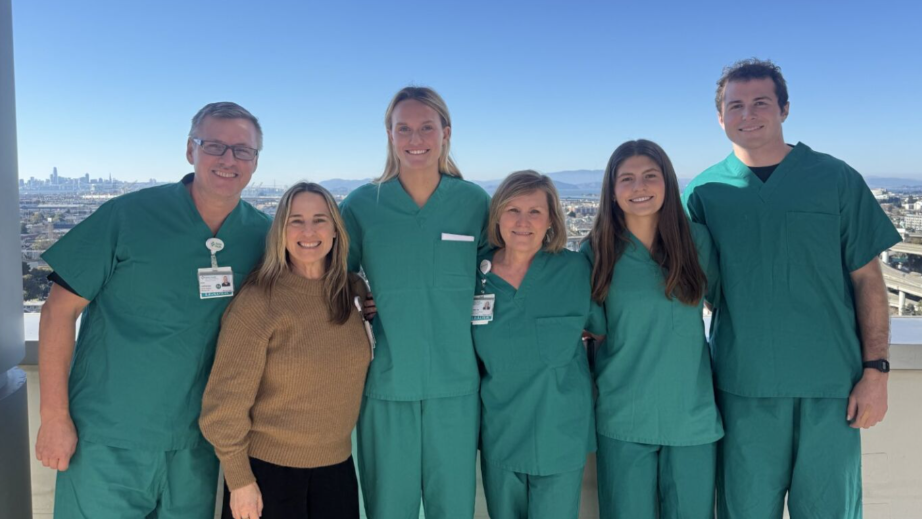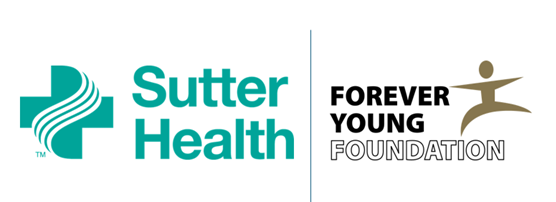By Nicole Young and Monique Binkley Smith, Vitals contributors
Nearly half of women over 40 have dense breast tissue, a condition the FDA requires all healthcare organizations to report to patients if it is indicated on a mammogram. But many women may not understand what dense breast tissue is, what to do if they have it, or how it might impact their health, their risk for breast cancer and their screening options.
Vitals recently checked in with two breast health experts about breast density and why it matters.
What is breast density?
Fellowship-trained breast radiologist Dr. Winifred Leung from Sansum Clinic, now part of Sutter Health, explains breasts are composed of three types of tissue: fibrous, glandular and fatty.
“Fibrous tissue holds the breast tissue in place, glandular tissue is the part of the breast that makes milk, and fatty tissue fills the space in between and it gives breasts their size and shape,” she says.
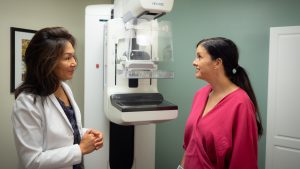
Breast radiologist Dr. Winifred Leung
Breast density, Dr. Leung continues, defines fibrous and glandular tissue in the breast, compared to the amount of fatty tissue. Dense breasts contain high amounts of glandular and fibrous tissue which appears white on a mammogram.
Why is breast density important?
When radiologists are reviewing mammograms to spot potential breast cancer, says Dr. Leung, dense breasts can make the scans more difficult to interpret since tumors and dense breast tissue may both appear white –a little like looking for a snowball in a snowstorm.
How do I know if I have dense breasts?
After reviewing your mammogram, your radiologist will assign a breast density score, and your mammogram results will indicate whether you have dense breasts.
The density of your breasts can change over time depending on age and hormonal changes. Breasts can become denser if you are pregnant or breastfeeding, are premenopausal, are taking hormone replacement therapy, or have a low body mass index (BMI).
If I have dense breasts, do I still need a mammogram?
“Early detection is key,” notes Dr. Rita Kwan-Feinberg, a breast cancer surgeon with Sutter East Bay Medical Group and co-director of the Carol Ann Read Breast Health Center at Sutter Alta Bates Summit Medical Center. “Mammograms are the only medical imaging screening proven to reduce deaths from breast cancer by early detection. However, because dense breasts can be difficult to detect small changes, if you have dense breast tissue, your doctor may recommend additional breast imaging, such as magnetic resonance imaging (MRI) or contrast-enhanced mammography, in addition to a 3-D tomosynthesis mammogram.”
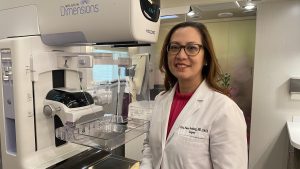
Dr. Rita Kwan-Feinberg in Sutter’s Carol Ann Read Breast Health Center Mobile Mammography Vehicle
Dr. Kwan-Feinberg cautions women to remember the overwhelming majority of women diagnosed with breast cancer –more than 75%– have no family history of breast cancer and many women in the early stages of breast cancer have no symptoms at all.
The bottom line, says Dr. Kwan-Feinberg, is women who have been told they have dense breast tissue need to be extra vigilant and get the screening their doctor recommends at the interval in which it’s recommended, adding, “If we find breast cancer early, it can be treated more easily than ever before, and we can cure it. Nine in 10 women with early-stage breast cancer can be cured with proper treatment.”
Regardless of breast density, Sutter Health recommends all women age 40 and older discuss with their doctor when they should start having routine mammograms, and then follow those recommendations.
Read on for more information on breast cancer risk factors, prevention, screening and the signs and symptoms of breast cancer:
What Every Woman Needs to Know About Breast Cancer Risks and Prevention
The Value of Genetic Testing in Identifying Cancer Risk Early
Best Friends Share Everything –Even Breast Cancer
Health System Drives Access to Mammography
Note: This content is not intended to be a substitute for professional medical advice, diagnosis or treatment. Always seek the advice of your physician or other qualified health provider with any questions you may have regarding a medical condition. Never disregard professional medical advice or delay in seeking it because of something you have read on this website.

